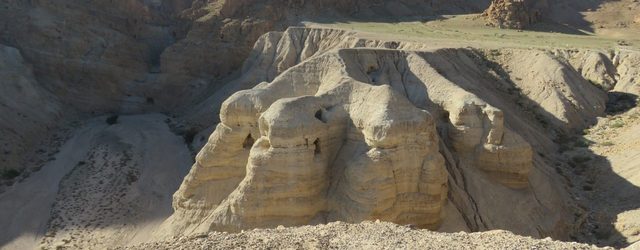エステル記10章 神に未来を託す
1.クセルクセスの政策
1節、クセルクセス王は、本土と海の島々に苦役を課したとあります。普通それは、強制労働を負わせることを意味しましたが、この時代には課税の意味が含まれています。彼の影響は、地中海沿岸諸島にまで及んだとされます。しかし、その力は、モルデカイの力に拠ることが、暗に示されています。ユダヤ人をその破滅から救い出したモルデカイの功績をたたえて、エステル記は閉じられています。
しかしながら、当時一体誰がこのような事態を予測しえたでしょう。ハマンの手によって、ユダヤ人を根絶する法令が発布された時には、もはや誰もが、暗澹たる思いで、望みを失っていたことでしょう。事実、そのような状況にあって、神の公正を願い、神の真実を期待するのは、難しいものです。アウシュビッツの悲惨な歴史を生き延びたコーリー・テン・ブームという人は、「私たちが知っている神に、知らない未来を託することを恐れてはならない」と語ったと言います。神のみことばに立ち続け、やがて事態が逆転する、と最善をなしてくださる神を信頼することです。
神は、闇から光へ、死から命へと私たちを招かれます。悲しみを喜びに変えてくださるお方です。確かに、神のなさることは、いつでもエステル記に書かれるようなハッピーエンドで終わることもなかったりします。ヘブルの著者が語るように、この地上においては、祝福と思われるものを何も得ずに終わってしまうこともあります(ヘブル11:39)。しかしそれでも神は、「さらにすぐれたものをあらかじめ用意しておられた」(ヘブル11:40)とされるのです。つまり、エステル記は、ハッピーエンドでまとめられましたが、たとえそうではなくても、さらに主のご計画は続くのです。失敗だ、終わりだと思う先に、神はさらにストーリーを用意しておいてくださるのです。
2.主に信頼し続ける
イエスの十字架もそうでした。イエスの十字架を目の当たりに、この人は「まことに神の子であった」と思うところがあっても、すべては終わってしまった、と誰もが考えたことでしょう。その三日後に、イエスが死の門を打ち破り、復活されるとは誰も考えませんでした。神が用意されるシナリオは、誰の心にも思い浮かんだことのないものです。
イエスを復活させた神の力が、私たちの人生に働くのです、そのような信仰を持つことが大切でしょう。そのように、神を認めるところがあればこそ、「自分の民の幸福を求め、自分の全民族に平和を語る」ことも起こりえます。モルデカイは、その信仰によって、民の幸福を求め、平和を語る者でした。幸福は、福利を意味します。また平和も、あらゆる種類の繁栄を意味します。健康、安全、物質的な満たし、よい人間関係です。こうしたことに関心を持ち、力を注ぐ指導者であればこそ、敬愛される結果にもなるのです。
本来人間は、自己中心な者でしょう。権力につけば、自分の立場を温存し、有利にすることを考えてしまう者です。サムエル記、列王記に描かれたイスラエルの王の記録は、まさにそのことをよく物語っています。そしてそのような王の統治による不本意な時代が続くことも、よくありがちなことです。しかし、必ず新しい出エジプトもあるのです。私たちの思いを超える業をなしてくださる、主を認め、主に期待する歩みをさせていただきましょう。
<クイズコーナー>
最初に、昨日のクイズです。エステル記の著者は、誰であると考えられているでしょうか?①モルデカイ、②エズラ、③不明。答は、③不明、モルデカイ、エズラといくつかの説がありますが、現在では不明とされています。では、今日の聖書クイズです。クセルクセス王が即位したBC481年頃、日本(倭国)は何時代であったでしょうか?①古墳時代、②平安時代、③安土桃山時代、答えはまた明日、では今日もよき一日となるように祈ります。
Chapter 10: Trusting the Future to God
1. the policy of Xerxes
Verse 1 says that King Xerxes imposed hard labor on the mainland and the islands of the sea. Usually that meant inflicting forced labor, but in this period it included the meaning of taxation. His influence is said to have extended to the Mediterranean islands. It is implied, however, that his power rested on the power of Mordecai. The book of Esther closes by praising Mordecai for delivering the Jews from their destruction.
Who, however, could have foreseen such a situation at the time? When Haman issued the decree to exterminate the Jews, everyone must have felt gloomy and hopeless. In fact, in such a situation, it is difficult to hope for God's justice and expect His truth. A survivor of the tragic history of Auschwitz, Cory ten Boom, said, "We must not be afraid to entrust a future we do not know to a God we do know." We must continue to stand on God's Word and trust Him to do His best to turn things around in time.
God invites us out of darkness into light, out of death into life. He is the one who turns sorrow into joy. To be sure, what God does does not always have a happy ending as described in the book of Esther. As the author of Hebrews tells us, we can end up without anything that seems like a blessing on earth (Hebrews 11:39). But even so, God "has prepared something even better in advance" (Hebrews 11:40). In other words, the book of Esther has a happy ending, but the Lord's plan continues, even if it does not. Even when we think we have failed, even when we think it is the end, God has more stories in store for us.
2. keep trusting in the Lord
The same is true of the cross of Jesus. Everyone saw the cross of Jesus and thought, "This man was truly the Son of God," but then they thought, "It's all over. No one would have thought that three days later Jesus would break through the gates of death and be resurrected. The scenario that God has in mind is one that has never crossed anyone's mind.
The power of God that resurrected Jesus will work in our lives, and it will be important to have that kind of faith. It is only in such a place of acknowledging God that "seeking the well-being of his people and speaking peace to all his people" can occur. Mordecai, by his faith, was one who sought the well-being of his people and spoke of peace. Happiness means well-being. Peace also means prosperity of all kinds. It means health, security, material fulfillment, and good relationships. A leader who is concerned and committed to these things will be respected.
By nature, human beings are self-centered. Once in power, we tend to think about preserving our position and taking advantage of it. The records of the kings of Israel in the books of Samuel and Kings illustrate this very point. And it is often the case that the unwillingness of such kings to rule continues. But there is always a new exodus, too. Let us acknowledge the Lord, who is able to do works beyond our expectations, and let us walk in expectation of Him.
<Quiz Corner
First, yesterday's quiz. Who do you think is the author of the Book of Esther? (1) Mordecai, (2) Ezra, (3) unknown. The answers are (3) unknown, Mordecai, Ezra, and several other theories, but the answer is currently considered unknown. Now for today's Bible quiz. What period was Japan (Wakoku) in 481 BC when King Xerxes ascended to the throne? (1) Kofun Period, (2) Heian Period, (3) Azuchi-Momoyama Period.
















